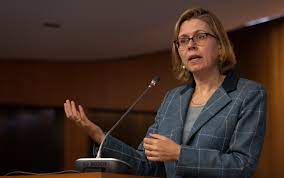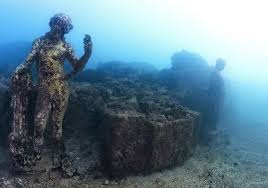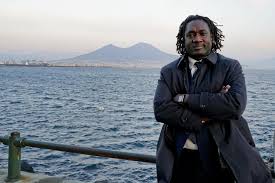How Emmanuel Macron became the most powerful leader in Europe

Paris: France’s love affair with trade barriers stretches back more than a century, ranging from the Méline tariff in 1892 that slapped taxes on imported foods to jibes about the country’s so-called “strategic yoghurt” policy in 2005 when Danone faced a US takeover threat.
Paris’ international trade policy is now ceded to a bigger club: the European Union. But rather than watering down the protectionist impulses of the Élysée Palace, membership has allowed Emmanuel Macron to pursue the policies on a bigger stage.
Only this time the French president has declared that it’s not France first, but Europe – with Paris very much in the driver’s seat.
“The main source for EU protectionism is the Élysée Palace in Paris and Emmanuel Macron who represents a very Gaullist type of idea of political control over the economy,” says Fredrik Erixon, director of the European Centre for International Political Economy (ECIPE), in Brussels.
In the 2010s, Berlin was the centre of EU power, with Paris and London providing a counterbalance. Germany, with its close economic ties to China, and Britain, with its vibrant international financial sector, favoured open trade, while France was more focused on protecting its national champions.
But with Britain now out of the EU and German power weakened as its economy struggles, France is exploiting a power vacuum to mould the EU in its image.
In Macron’s eyes, the bloc should focus on sovereignty above trade and relax EU restrictions to allow lavish support for domestic industries.
Macron’s vision of a sovereign Europe was first articulated in a speech delivered six years ago at the Sorbonne University in Paris.
In it, he called for a bigger EU budget, a complete banking union and even a European army. He knew others would baulk at the idea of endowing Brussels with even more power.
“Some will tell you it’s not the right moment. But it’s never the right moment,” he told the audience seated in the Sorbonne’s ostentatious amphitheatre.
It seems now his time has come. The clearest recent example of Macron’s rising power is the French president’s decision to publicly intervene in the appointment of American economist Fiona Scott-Morton as chief competition economist at the European Commission.
Macron called the appointment “dubious”, forcing Scott-Morton to turn the job down after she concluded her position would have been untenable. Scott-Morton told The Telegraph she blamed “insecure” France for the debacle.
Alexandre de Streel, a former Belgian diplomat and professor of European law at the University of Namur in Brussels, says: “What it says about Europe is that Macron was able to influence that kind of position, which shows his and France’s influence in the Commission.”
Macron’s star has risen after he played a pivotal role brokering a deal on Europe’s new leadership team in 2019 that placed Ursula Von der Leyen at its helm.
Her first speech as the European Commission’s president elect drew clear parallels with Macron’s speech at the Sorbonne. In it, she called for more collective action on a range of issues from climate to completing a banking union.
De Streel says: “I actually do this with my students – ask them to compare the texts. “It’s almost as if she plagiarised parts of [Macron’s speech].”
Erixon says: “The Commission led by Von der Leyen has sought to drive up the amount of money that is going to be given in industrial subsidies. This is something that has been called for by France for ages: a muscular industrial policy that is going to sprinkle a lot of cash on favoured industries.”
“Sprinkle” is an understatement. Official figures show more than €650bn (£550bn) of state aid has been doled out since March 2022, when the rules were relaxed to allow national governments to subsidise “the manufacturing of strategic equipment” such as solar panels, batteries and heat pumps, as well as the production of key components and related critical raw materials.
Germany, desperate to support its industrial base, has been the biggest beneficiary, accounting for more than half of the subsidies doled out.
Together with France, the two biggest economies in Europe account for almost 80pc of all subsidies handed out so far.
One former Brussels diplomat says: “In the gap left by the UK, some had speculated that other non-euro members would step up with more clout advocating the UK’s less interventionist path.
“That did not happen, in my opinion. The Danes, Swedes and Poles did not fill that role. Instead, the German-French duopoly became more prominent. The French and Germans almost always discuss all EU issues amongst themselves before they come to the broader EU venues and they try hard to get on the same page.
“This gives them more power now than before Brexit because there isn’t a counterweight in the UK.”
Germany’s role in the relationship has been diminished in recent years as its attention has been focused elsewhere. Erixon says a “gradual weakening has accelerated under this German government, which is focused very much on its own energy transition because it was overwhelmed by its misjudgment of Russia”.
Meanwhile, a global trend towards protectionism has provided the perfect excuse for France to ramp up its rhetoric.
State-backed industrial policies such as Joe Biden’s Inflation Reduction Act and Xi Jinping’s Made in China 2025 are attempts to create a future shaped by sovereignty and security.
The IMF says trade restrictions have “exploded” in the past five years, with subsidies the protectionist measure of choice.
Erixon says there are few willing to stand up to Paris.
“Many of these small economies are exhausted. They’re exhausted by the avalanche of interventionism that this Commission has come up with. Some of them have kept a low voice because they have been prioritising other issues.
“For the Nordics, like Finland and Sweden, if you look at what’s happening to the east of them you can see that priority number one for these countries is Nato membership. Priority number two is Nato membership and priority number three is Nato membership.”
De Streel suggests maintaining a power balance in Brussels is the key to the EU’s future.
He says: “I think Europe can only work if [France and Germany] are equally strong and equally influential in the political decision making, because they reflect two different cultures. “There is always this risk that one member state becomes too powerful and imposes their values to the detriment of the others. But I still think Germany is economically powerful enough to exert its influence so I’m not sure we are there yet.”
Erixon believes Europe is losing its focus on economic growth in pursuit of power and influence.
Yet the EU can ill-afford to ignore its economy in pursuit of international status to rival the United States. Recent research from the ECIPE found that European countries would rank among the poorest states in the US if they were part of the union.
Protectionism is even more problematic for the wider challenge of raising living standards, Erixon warns.
“There is nowhere through history where any country regulated their way to economic success. That’s not a way to create more prosperity.”
As Macron’s influence grows, it’s a warning other EU leaders may do well to heed.





